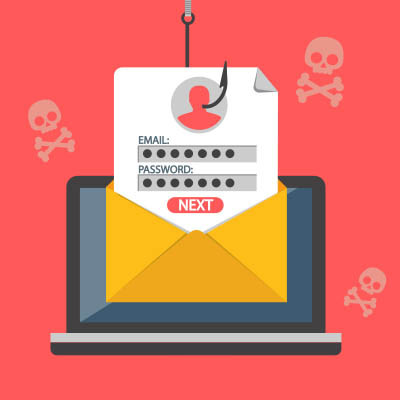
KB Technologies Blog
KB Technologies has been serving the Deerfield Beach area since 2002, providing IT Support such as technical helpdesk support, computer support, and consulting to small and medium-sized businesses.
Without Employee Training, Phishing Scams Could Cost Your Business
It’s hard to vouch for the idea that someone is constantly being attacked by cyberthreats when there is no real tangible evidence to support this notion. People won’t trust words of warning against threats that they cannot see and won’t feel threatened by them until they’re knocking on their door. Today, we want to discuss how you can turn around these challenges, particularly when it comes to training your staff on the importance of cybersecurity.
Data Transportation Happens Quickly
When you consider how quickly data can travel across your network over the course of a few seconds, it’s easy to see how people can let that speed distract them from the danger they are in. It’s one of the big side-effects of doing business in a digital world. Data is the powerhouse behind many of today’s greatest innovations, and it can be used to strengthen just about any organizational decision.
That said, it’s also easy to argue that overly focusing on data can decrease the personality of business transactions, particularly when an organization is trying to optimize for efficiency. Of course, hackers will always try to use your data against you in increasingly clever and unforeseen ways. People whose jobs don’t focus entirely on IT might not know enough about cybersecurity to care about it, or they might see it as “not part of their job.” We’re here to dispel these thoughts, as some very serious trends indicate that, shockingly, cybersecurity is, in fact, everyone’s job in at least some capacity.
How Phishing Occurs
The most common of all cybersecurity attacks is the phishing scam. They typically come in the form of legitimate-looking emails that trick users into submitting sensitive information or downloading malware. The cybercriminal will basically “lure” their prey into giving up information that might allow them to access a system. Phishing scams can be considered an evolution of your traditional cybersecurity threats, as they bypass the advanced security solutions that most organizations should have in place.
Phishing emails are a common version of these attacks, utilizing links to online forms to collect credentials. You might also see SMS messages with infected links, fraudulent phone calls, or other scams. Phishing is a dynamic threat that you should be prepared to address, regardless of your position with a business, with a notification to your designated IT resource.
Identifying Phishing Attacks
Phishing attacks are not necessarily without warning; consider the following list of potential giveaway signs.
- A tone that doesn’t match the supposed sender
- Misspellings and other discrepancies in key details, like email addresses, domain names, and links
- Out-of-the-blue messages
- Egregious spelling and grammar errors
- Unexpected or out-of-context attachments
- Excessive urgency behind or open threats as a consequence of not complying with the message
- Ambiguous messages that motivate the recipient to investigate
- Unusual requests or requests for explicitly sensitive information
A little caution goes a long way, and if you are ever in doubt, you can call KB Technologies for a second opinion.
Don’t Let Your Business Fall for Phishing Threats
KB Technologies can help your business train employees to respond to potential phishing attacks. To learn more, call us at (954) 834-2800.
Tired Of Annoying Computer Problems That Keep Coming Back?
Reach Out Today!
Mobile? Grab this Article!
Tag Cloud
IT Support
Hardware
Security
IT Services
Malware
Backup
Ransomware
Innovation
Business
Privacy
Mobile Device
Phishing
Tip of the Week
Managed IT Services
Hackers
Microsoft
Disaster Recovery
Technology
Collaboration
Network Security
Saving Money
Google
Software
Productivity
Efficiency
Data Recovery
Email
Users
Workplace Strategy
Internet
Business Computing
User Tips
Cybersecurity
Cloud
Hosted Solutions
Workplace Tips
Quick Tips
Best Practices
Data
Current Events
Latest Blog
Nowadays, small and medium-sized businesses need the right technological tools to drive efficiency and growth. Software-as-a-Service has emerged as a powerful, accessible model transforming business operations. Understanding SaaS, its benefits, potential management hurdles, ...
Latest News
KB Technologies is proud to announce the launch of our new website at http://www.kb-it.com. The goal of the new website is to make it easier for our existing clients to submit and manage support requests, and provide more information about our services for ...


Comments